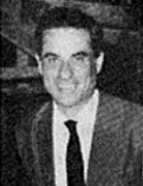

Interpretations to serve that explanation – the final synthesis of which he never wrote – he would look for in Alexandre Herculano, Antero de Quental, Oliveira Martins and António Sérgio, Jaime Cortesão, Sérgio Buarque de Holanda , Robert Ricard and others, now his contemporaries. With them, he tries to find the reasons for the peninsular duality, where the Portuguese mentality is closer to the rationality and secularism of French culture – as opposed to Spanish religiosity. This duality had been well pointed out by Robert Ricard (one of his Parisian masters) and JBC was happy to develop it. In search of a Way Forward for Portugal, wondering whether this route should lead to the Atlantic or to Europe, JBC starts from the rationalist tradition in Portuguese thought and assumes (in the wake of António Sérgio and others, including Herculano) that there was a decadence which, with the Inquisition, put an end to that opening. Portugal was, thus , an unfulfilled promise (quote from Sérgio ’ s ‘O Reino Cadaveroso’ [The Cadaverous Kingdom] ). It was a choice that had to be made. And for JBC , there was no doubt that the right path lay in the Atlantic, not in subordination to Madrid, which he assumed would be the result of choosing the European route. He wanted an authentic Portuguese-Brazilian community to which Africa should be added. ‘In it, all parties would meet again in the most genuine linguistic and civilisational individuality’ . And he concludes: ‘This is the condition for Portugal to become itself again’ ( Rumo de Portugal [The direction of Portugal] , 1974, p. 81, text dated Paris, 9 April 1974).
It was no coincidence that he called himself a ‘Portuguese-French-Afro-Brazilian’ historian (autograph , 1978) and aspired to this Atlantic community that would serve the purposes of his common homelands. Historian and citizen. And he was ‘one of the most generous, open, simple and firm Portuguese personalities of the 20 th century’ in the words of his friend, colleague and admirer, Carlos Guilherme Mota (from the University of São Paulo). He was always concerned with what was happening in society and with building a scientific work: ‘I don ’ t feel, nor am I, the owner of any era, of any field of research. I ’ m only interested in solving the problems I face.’ (‘Prefácio’ [Prefeace] in Manuel Nunes Dias, 1967, p. X).
This work is financed by national funds through FCT - Foundation for Science and Technology, I.P, in the scope of the projects UIDB/04311/2020 and UIDP/04311/2020.
